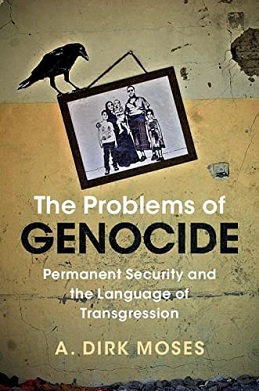
The Wretched of the Earth is a 1961 book by the philosopher Frantz Fanon, in which the author provides a psychoanalysis of the dehumanizing effects of colonization upon the individual and the nation, and discusses the broader social, cultural, and political implications of establishing a social movement for the decolonization of a person and of a people. The French-language title derives from the opening lyrics of "The Internationale".
An ethnocracy is a type of political structure in which the state apparatus is controlled by a dominant ethnic group to further its interests, power and resources. Ethnocratic regimes typically display a 'thin' democratic façade covering a more profound ethnic structure, in which ethnicity – and not citizenship – is the key to securing power and resources.
Internal colonialism is the uneven effects of economic development on a regional basis, otherwise known as "uneven development" as a result of the exploitation of minority groups within a wider society which leads to political and economic inequalities between regions within a state. This is held to be similar to the relationship between a metropole and a colony, in colonialism proper. The phenomenon leads to the distinct separation of the dominant core from the periphery in an empire.

Indirect rule was a system of governance used by the British and others to control parts of their colonial empires, particularly in Africa and Asia, which was done through pre-existing indigenous power structures. Indirect rule was used by various colonial rulers: the French in Algeria and Tunisia, the Dutch in the East Indies, the Portuguese in Angola and Mozambique and the Belgians in Rwanda and Burundi. These dependencies were often called "protectorates" or "trucial states". By this system, the day-to-day government and administration of areas both small and large were left in the hands of traditional rulers, who gained prestige and the stability and protection afforded by the Pax Britannica, at the cost of losing control of their external affairs, and often of taxation, communications, and other matters, usually with a small number of European "advisors" effectively overseeing the government of large numbers of people spread over extensive areas.

European colonialism and colonization was the policy or practice of acquiring full or partial political control over other societies and territories, founding a colony, occupying it with settlers, and exploiting it economically. For example, colonial policies, such as the type of rule implemented, the nature of investments, and identity of the colonizers, are cited as impacting postcolonial states. Examination of the state-building process, economic development, and cultural norms and mores shows the direct and indirect consequences of colonialism on the postcolonial states.

Ashis Nandy is an Indian political psychologist, social theorist, and critic. A trained clinical psychologist, Nandy has provided theoretical critiques of European colonialism, development, modernity, secularism, Hindutva, science, technology, nuclearism, cosmopolitanism, and utopia. He has also offered alternative conceptions relating to cosmopolitanism and critical traditionalism. In addition to the above, Nandy has offered an original historical profile of India's commercial cinema as well as critiques of state and violence.
The history of external colonisation of Africa can be dated back from ancient, medieval, or modern history, depending on how the term colonisation is defined.
Postcolonialism is the critical academic study of the cultural, political and economic legacy of colonialism and imperialism, focusing on the impact of human control and exploitation of colonized people and their lands. More specifically, it is a critical theory analysis of the history, culture, literature, and discourse of imperial power.

Postcolonial international relations is a branch of scholarship that approaches the study of international relations (IR) using the critical lens of postcolonialism. This critique of IR theory suggests that mainstream IR scholarship does not adequately address the impacts of colonialism and imperialism on current day world politics. Despite using the language of post-, scholars of Postcolonial IR argue that the legacies of colonialism are ongoing, and that critiquing International Relations with this lens allows scholars to contextualize global events. By bridging postcolonialism and International Relations, scholars point to the process of globalization as a crucial point in both fields, due to the increases in global interactions and integration. Postcolonial IR focuses on the re-narrativization of global politics to create a balanced transnational understanding of colonial histories, and attempts to tie non-Western sources of thought into political praxis.

Mahmood Mamdani, FBA is an Indian-born Ugandan academic, author, and political commentator. He currently serves as the Chancellor of Kampala International University, Uganda. He was the director of the Makerere Institute of Social Research (MISR) from 2010 until February 2022, the Herbert Lehman Professor of Government at the School of International and Public Affairs, Columbia University and the Professor of Anthropology, Political Science and African Studies at Columbia University.
The coloniality of power is a concept interrelating the practices and legacies of European colonialism in social orders and forms of knowledge, advanced in postcolonial studies, decoloniality, and Latin American subaltern studies, most prominently by Anibal Quijano. It identifies and describes the living legacy of colonialism in contemporary societies in the form of social discrimination that outlived formal colonialism and became integrated in succeeding social orders. The concept identifies the racial, political and social hierarchical orders imposed by European colonialism in Latin America that prescribed value to certain peoples/societies while disenfranchising others.

Settler colonialism is a type of colonialism in which foreign settlers move to and permanently reside on land already inhabited by Indigenous residents, with the goal of eliminating them and their cultures and replacing them with a settler society. Some, but not all, scholars argue that settler colonialism is inherently genocidal. It may be enacted by a variety of means, ranging from violent depopulation of the previous inhabitants to less deadly means, such as assimilation or recognition of Indigenous identity within a colonial framework.

Decoloniality is a school of thought that aims to delink from Eurocentric knowledge hierarchies and ways of being in the world in order to enable other forms of existence on Earth. It critiques the perceived universality of Western knowledge and the superiority of Western culture, including the systems and institutions that reinforce these perceptions. Decolonial perspectives understand colonialism as the basis for the everyday function of capitalist modernity and imperialism. Decoloniality emerged as part of a Latin American movement examining the role of the European colonization of the Americas in establishing Eurocentric modernity/coloniality.
Indigenous feminism is an intersectional theory and practice of feminism that focuses on decolonization, indigenous sovereignty, and human rights for Indigenous women and their families. The focus is to empower Indigenous women in the context of Indigenous cultural values and priorities, rather than mainstream, white, patriarchal ones. In this cultural perspective, it can be compared to womanism in the African-American communities.
Anthony Dirk Moses is an Australian scholar who researches various aspects of genocide. In 2022 he became the Anne and Bernard Spitzer Professor of Political Science at the City College of New York, after having been the Frank Porter Graham Distinguished Professor of Global Human Rights History at the University of North Carolina at Chapel Hill. He is a widely regarded as a leading scholar on genocide, especially in colonial contexts, as well as on the political development of the concept itself. He is known for coining the term racial century in reference to the period 1850–1950. He is editor-in-chief of the Journal of Genocide Research.
Faramerz Noshir Dabhoiwala is a historian and senior research scholar at Princeton University where he teaches and writes about the social history, cultural history, and intellectual history of the English-speaking world, from the Middle Ages to the present day.
Scholarship on nationalism and gender explores the processes by which gender affects and is impacted by the development of nationalism. Sometimes referred to as "gendered nationalism," gender and nationalism describes the phenomena whereby conceptions of the state or nation, including notions of citizenship, sovereignty, or national identity contribute to or arise in relation to gender roles.
Andreas Wimmer is a Swiss sociologist who is the Lieber Professor of Sociology and Political Philosophy at Columbia University. He has a PhD in social anthropology from the University of Zurich.

The Problems of Genocide: Permanent Security and the Language of Transgression is a 2021 book by Australian historian A. Dirk Moses. The book explores what Moses sees as flaws in the concept of genocide, which he argues allows killings of civilians that do not resemble the Holocaust to be ignored. Moses proposes "permanent security" as an alternative to the concept of genocide. The book was described as important, but his emphasis on security is considered only one factor to be causing mass violence.

Zionism as settler colonialism is the paradigm that views Zionism and the Israeli–Palestinian conflict as a form of settler colonialism. Patrick Wolfe, one of the most influential theorists of settler colonial studies, considered Israel an example and discussed it in his widely cited essay "Settler colonialism and the elimination of the native". Other scholars who have used a settler-colonial analysis of Israel/Palestine include Edward Said, Fayez Sayegh, Maxime Rodinson, George Jabbour, Ibrahim Abu-Lughod, Baha Abu-Laban, Jamil Hilal, and Rosemary Sayigh.










